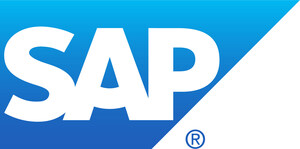WALLDORF, Germany, March 11, 2015 /PRNewswire/ -- As the cloud becomes the primary model for both IT and line-of-business professionals around the world, a certain amount of refinement and fine-tuning is a healthy part of the process. In other words, now out of its infancy, the cloud is growing up. Highlighting this trend, SAP SE (NYSE: SAP) today announced the results of a global survey conducted with Oxford Economics that showcase the fact that the cloud business model has not only become mainstream – indeed, over two-thirds (69 percent) of businesses surveyed expect to make moderate-to-heavy cloud investments over the next three years – but that companies are increasingly shifting from using the cloud for productivity and efficiency to specific business benefits like innovation in supply chain, talent management, collaboration and analytics.
"The cloud is a very powerful model in which to operate," said Don Whittington, CIO of ASR Group, who participated in an in-depth interview about the company's use of cloud computing. "It is one that lets us eliminate rote work – such as matching orders and balancing books – and enable employees to become more analytical. They can use their time to look for ways to better the business."
In late 2014, Oxford Economics surveyed 200 executives from around the world and compared the results with the same survey fielded in 2012. Respondents work for companies headquartered in 11 countries, including the United States, Brazil, Germany and China, and comprise C-level executives, business-unit heads, and IT and operations executives representing banking/capital markets, retail, consumer products and telecommunications industries. The findings reflect that companies with meaningful experience working in the cloud remain enthusiastic about its potential to reinvent their businesses – and in fact, many say it already has. Key findings include:
- Cloud strategy is here now, heavy investments planned: Just about all (99 percent) of survey respondents say cloud computing is part of their company's business strategy today. More than two-thirds (69 percent) of businesses expect to make moderate-to-heavy cloud investments over the next three years, and they also plan to increase their migration of core business functions to the cloud. In fact, within three years, nearly all respondents say that innovation, R&D and supply chain will be "somewhat or mostly" cloud-based.
- Cloud has a transformative impact: In the follow-up survey in 2014, nearly one-third (33 percent) of respondents said the adoption of cloud computing has had a transformative impact on their business performance. This reflects a sense that cloud adoption and the changes that come with it are inevitable for businesses. To this point, greater investments are expected across lines of business in coming months and years.
- Big Data is getting bigger: Real-time use of Big Data is also growing in strategic importance, with 59 percent saying they use the cloud to better manage and analyze data, anytime from anywhere – a 10-percentage-point increase over 2012.
"As we've long believed, the cloud is far more than a means to lower total cost of ownership; it's a platform for doing business in entirely new ways," said Rob Glickman, vice president, SAP Cloud and Line of Business Marketing. "These survey findings confirm the trend. Early cloud adopters are now seeing strong returns on their initial investments, and they can feel satisfied that their strategy of embracing the cloud is now proving to be extremely beneficial to their business."
Read a full copy of the report here, and view the infographics "The Cloud's Enduring Promise" and "The Cloud Grows Up" to learn more about the evolution of the cloud in business.
For more information, visit the SAP News Center. Follow SAP on Twitter at @sapnews.
Media Contact:
Janice Tsoules, +1 (650) 223-4817, [email protected], EDT
Any statements contained in this document that are not historical facts are forward-looking statements as defined in the U.S. Private Securities Litigation Reform Act of 1995. Words such as "anticipate," "believe," "estimate," "expect," "forecast," "intend," "may," "plan," "project," "predict," "should" and "will" and similar expressions as they relate to SAP are intended to identify such forward-looking statements. SAP undertakes no obligation to publicly update or revise any forward-looking statements. All forward-looking statements are subject to various risks and uncertainties that could cause actual results to differ materially from expectations. The factors that could affect SAP's future financial results are discussed more fully in SAP's filings with the U.S. Securities and Exchange Commission ("SEC"), including SAP's most recent Annual Report on Form 20-F filed with the SEC. Readers are cautioned not to place undue reliance on these forward-looking statements, which speak only as of their dates.
Logo - http://photos.prnewswire.com/prnh/20110126/AQ34470LOGO
SOURCE SAP SE
Related Links
WANT YOUR COMPANY'S NEWS FEATURED ON PRNEWSWIRE.COM?
Newsrooms &
Influencers
Digital Media
Outlets
Journalists
Opted In




Share this article